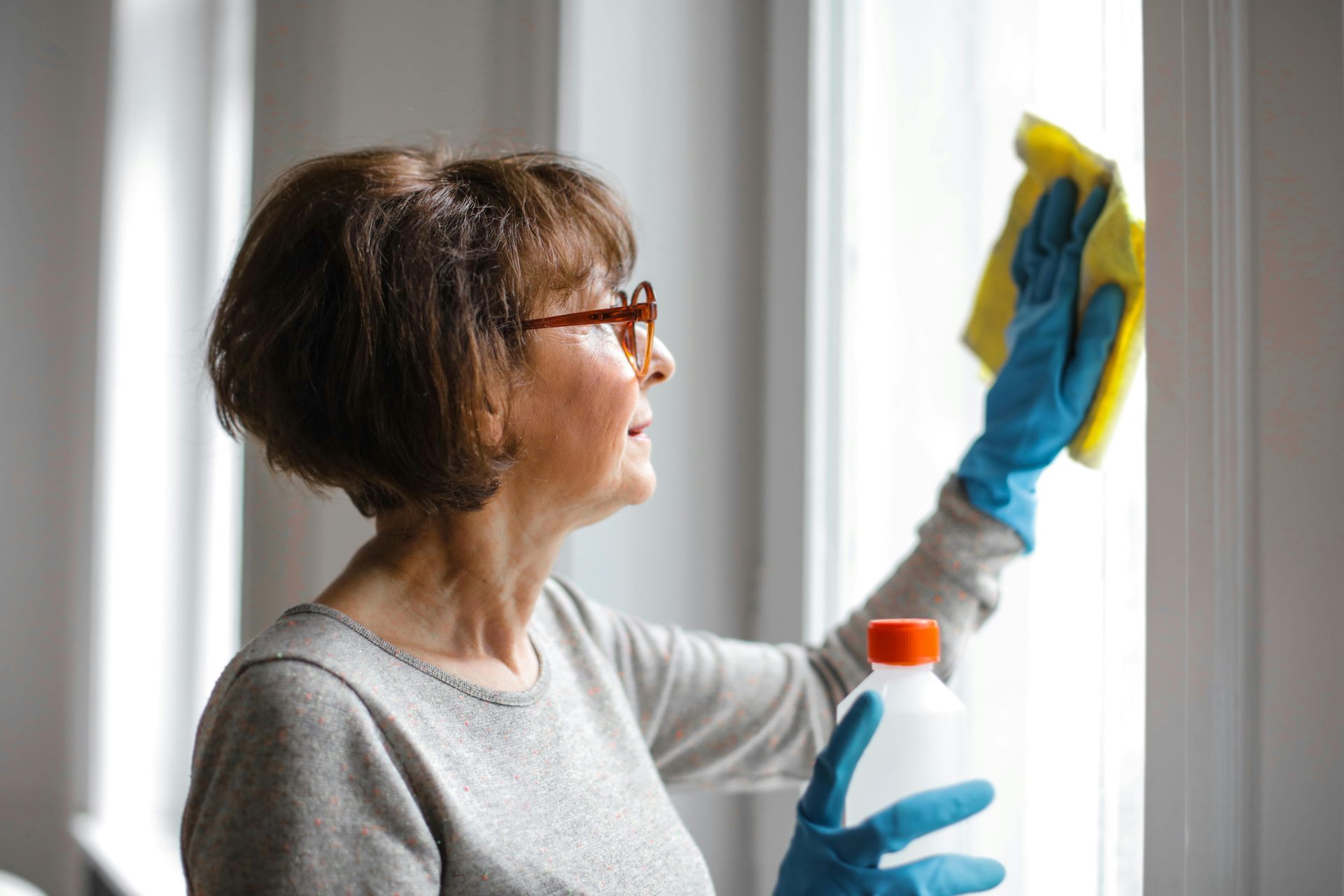Top Tips for Maintaining Glass Surfaces: Keep Them Clean and Pristine
Glass surfaces, whether in homes or commercial spaces, add a touch of elegance and sophistication. From windows and table tops to mirrors and shower enclosures, their sleek and transparent design can elevate any room. However, maintaining their clarity and shine requires some care. Without proper upkeep, glass surfaces can accumulate smudges, fingerprints, water spots, and scratches, diminishing their beauty.
Here’s a comprehensive guide on how to keep your glass surfaces clean, scratch-free, and looking their best.

1. Choose the Right Cleaning Tools and Products
The key to spotless glass starts with using appropriate tools and cleaners.
- Use Microfiber Cloths: Soft and non-abrasive, microfiber cloths are perfect for wiping glass without leaving streaks or lint.
- Avoid Harsh Cleaners: Opt for ammonia-free glass cleaners to avoid damage to coatings or finishes. A mix of water and white vinegar is a great DIY alternative.
- Invest in a Squeegee: For larger surfaces like windows and shower glass, a squeegee helps prevent water spots and streaks after cleaning.
Pro Tip: Never use abrasive scrubbers or paper towels, as they can scratch the glass surface or leave behind fibers.
2. Clean Regularly
Frequent cleaning prevents the buildup of dirt, dust, and water stains that are harder to remove over time.
- Daily Wipe-Down: For surfaces like shower enclosures or frequently touched table tops, a quick wipe with a damp microfiber cloth after use can minimize spots.
- Weekly Cleaning: For windows and mirrors, aim for a thorough cleaning at least once a week, or more often in high-traffic areas.
- Seasonal Maintenance: Large glass surfaces like sliding doors or skylights may require deep cleaning every few months, especially if exposed to outdoor elements.
3. Prevent Water Spots and Mineral Buildup
Hard water can leave behind unsightly stains on shower doors and windows.
- Use Water Repellent Coatings: Applying a water-repellent spray to shower glass can reduce mineral deposits and make cleaning easier.
- Wipe Dry After Use: After a shower, use a squeegee or towel to remove water droplets from glass surfaces.
- Filter Hard Water: Consider installing a water softener to reduce mineral content in your water supply.
4. Handle Scratches with Care
Scratches can dull the appearance of glass, but minor ones can often be remedied.
- Use a Glass Polishing Kit: These kits are specifically designed to minimize small scratches.
- DIY Fix with Toothpaste: Non-gel toothpaste can work as a mild abrasive for minor scratches. Gently rub it into the scratch with a soft cloth, then wipe clean.
- Consult Professionals: For deeper scratches or damage, seek professional glass repair services.
5. Protect Glass Surfaces
Preventive care can save you time and money in maintaining your glass surfaces.
- Add Protective Pads: For glass table tops, use felt pads or rubber bumpers to prevent scratches from objects like plates, vases, or laptops.
- Use Coasters and Trays: Prevent rings and stains on glass tables by always using coasters for drinks and trays for decorative items.
- Apply Window Films: For glass exposed to direct sunlight, UV-protective window films can prevent fading and cracking over time.
6. Clean Glass Safely
Safety is crucial when dealing with glass, especially large or delicate pieces.
- Work on Cool Surfaces: Avoid cleaning glass that has been exposed to sunlight or heat, as cleaners can evaporate quickly and leave streaks.
- Avoid Excess Water: Too much water or cleaning solution can seep into window frames or under glass edges, potentially causing damage.
- Use a Stable Platform: When cleaning high windows or glass partitions, ensure you use a stable ladder or hire professionals for safety.
7. Special Care for Decorative Glass
Frosted, etched, or stained glass requires extra attention to preserve its unique design.
- Dust Regularly: Use a soft brush or dry microfiber cloth to remove dust from textured or detailed surfaces.
- Spot Clean Gently: For etched or frosted glass, use a diluted solution of mild dish soap and water, wiping gently to avoid smudging the design.
- Avoid Harsh Chemicals: Stained or painted glass may have delicate finishes that can be damaged by strong cleaners.
8. Prevent Condensation Issues
Condensation can cause streaking, mold, or even damage to frames.
- Improve Ventilation: In areas like bathrooms or kitchens, ensure proper airflow to reduce humidity.
- Use a Dehumidifier: For persistent condensation problems, a dehumidifier can help maintain optimal indoor humidity levels.
- Upgrade Windows: Double-glazed or insulated glass windows are less prone to condensation than single-pane options.
9. Know When to Call Professionals
Some glass surfaces, such as skylights or storefront windows, require professional attention for cleaning or repair.
- Hire Experts for Large-Scale Projects: Cleaning high or hard-to-reach glass requires specialized tools and expertise.
- Repair or Replace as Needed: Cracks or severe damage should always be handled by professional glass technicians to ensure safety and quality.
Conclusion
Maintaining glass surfaces doesn’t have to be daunting. With the right tools, techniques, and a little effort, you can keep your glass spotless, shiny, and damage-free for years to come. Regular cleaning, preventive care, and professional help when needed will ensure your glass surfaces continue to enhance your space’s elegance and functionality.
Ready to give your glass the care it deserves? Start with these tips and enjoy crystal-clear surfaces that make a lasting impression.
You might also like



Book a Service Today
We will get back to you as soon as possible
Please try again later
Your go-to custom glass company in Seattle, WA
All Rights Reserved | Pacific Glass Inc. | Designed by Outlookmediallc.com


